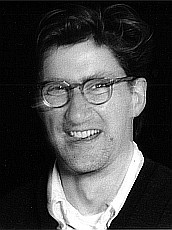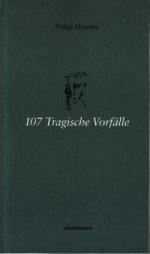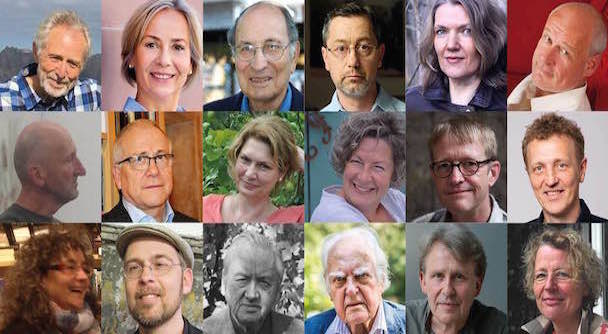Authors & Books
Philipp Mosetter

Biography
Philipp Mosetter was born on 8th December in 1956 as the second of five children in Schramberg in the Black Forest. In 1973 move to Frankfurt / Main. 1976 foundation of the theatre group „Karl Napps Chaos Theater“. 1977 A-level and beginning of the short-term studies in philosophy. At the end of 1981 the theatre group „Karl Napps Chaos Theater“ dissolved. First solo programs and various works as freelance writer, for radio, television and theatre. 1986 „Der lange Spaziergang“ (engl. „The long walk“). Beginning of work as a writer for different advertising agencies in Germany and Austria. 1989 foundation of the „Monoholitic Theatre“. Within this framework four full-length plays were performed on stage: „Der Roman – eine Lesung“ (engl. „The novel – a lection“), „Unter Glücklichen“ (engl. „Among happy ones“), „Der panische Ton“ (engl. „The panic ton“), and „Z.B. Mittwoch“ (engl. „E.g. Wednesday“), as well as several short playlets. From1993 until summer of 1998 he worked as a university lecturer for language organization at the University of applied arts in Vienna. From 1996 until winter of 1997 he was a member of the television show „Quast“. In the Goethe year 1999 a commented version of Goethes „Faust“ arises in cooperation with Michael Quast. We published the novel „107 tragische Vorfälle“ (engl. „107 tragical incidents“) in 2000. The performances of Pilipp Mosetter are legendary: Wheter in combination with „Karl Napps Chaos Theater“ in Teufelhof Basel, in Pektakel Wien, in the Berliner Kabarett Anstalt or elsewhere. Or his lections in the Literaturhaus Frankfurt or his performances with his own one-person-plays at the theatre in the Mousonturm Frankfurt. Mosetter knows how to transfix and amuse the audience with staged sophistication like in his other plays: „Unter Glücklichen“ (engl. „Among the happy ones“), „Rotter und Alma“ (engl. „Rotter and Alma“), „Wallersteins Irrtum“ (engl. „Error of Wallenstein“), „Die Locke des Höllenfürsten“ (engl. „Ringlet of the Prince of Hell“), „Richard / Ein Monogramm“ (engl. „Richard / A monogram), „Faust / Ein Adept“ (engl. „Faust / An adept“), „Perlikofer oder der schöne Alltag“ (engl. „Perikofer or the great everyday life“).

107 tragical incidents
- 112 pages
- Series Label (Reihe ETIKETT)
978-3-929232-65-3
Philipp Mosetter's performances are fabulous: Indifferent whether together with Karl Napp's chaos theater or in readings and stagings of his own one-person-plays – Mosetter knows how to fascinate and tickle pink his audience through directorial ingenuity. The local incidents are a concentrated enjoyable reading experience, which is added by three drawings of the author.








